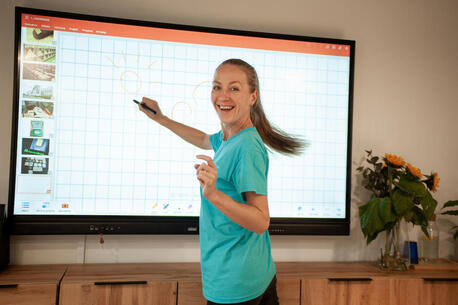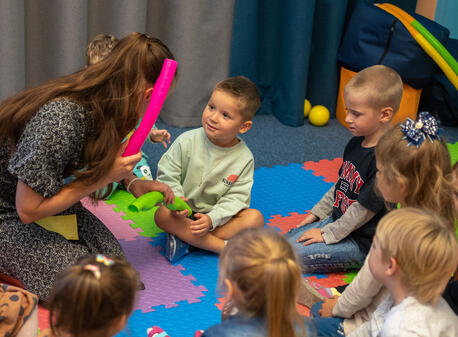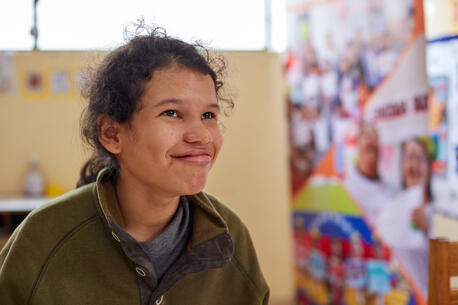
Inclusive Education for Children With Disabilities in Peru
Through a program delivered by UNICEF and partners with funding from Education Cannot Wait, children with disabilities like Anaís and Joel are finding renewed hope and energy with access to quality, inclusive learning environments.
The Venezuelan regional crisis is one of the largest in the world. Millions have been displaced across South America and around the globe. Many children have left their homes, their extended families and their country behind to seek a better life in places like Colombia, Ecuador and Peru.
The influx of refugees and migrants from Venezuela, coupled with the ongoing challenges of poverty and inequality, the lingering impacts of COVID-19, climate change and other interconnected crises are impacting learning trajectories for both refugee and host community children.
For children with disabilities — for whom even getting to school or moving around inside the school building can be a struggle — the challenges can seem insurmountable. In Peru, an innovative multi-year program delivered by UNICEF with funding from the United Nations global fund for education in emergencies, Education Cannot Wait (ECW), is helping girls and boys with disabilities, like Anaís and Joel, to find new opportunities and new hope through quality, inclusive education.
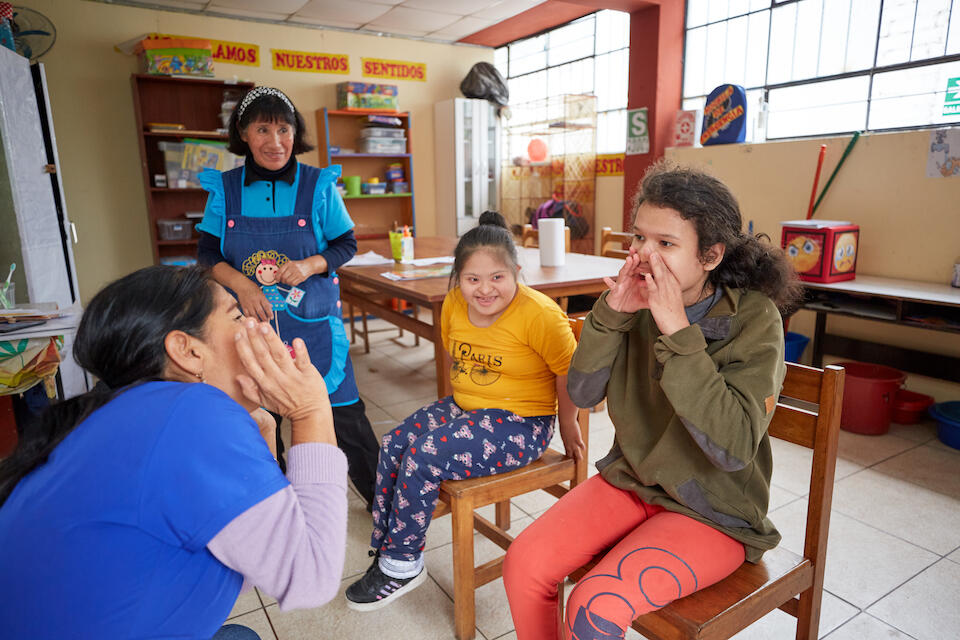
A severe case of chicken pox, followed by seizures and disabilities
Anaís, 15, has a smile and infectious energy that could melt a glacier. When she was 2, she started having seizures as a result of a particularly severe case of chicken pox. This marked the beginning of a rapid decline that would change her life forever.
"It all began with seizures and, after that, it has been an ongoing process,” says her father, Carlos José. “Anaís now has physical motor disabilities and psychomotor retardation and is unable to speak. However, the cause of her seizures and decline remains unknown."
In her native Venezuela, where resources are limited and transport to specialized facilities is difficult, Anaís was never able to attend school. As it became ever more challenging to respond to the needs of their daughter in the crisis that Venezuela was facing, Carlos José and his wife decided to leave their country in 2018.
Imagine what an ordeal it must have been for a family with limited resources and a daughter with disabilities. Imagine the fear and uncertainty of traveling across the region to a new country with not much more than the clothes on your back and hope in your heart. Despite their dreams of a better world, Anaís and her family found new challenges when they arrived in Peru.
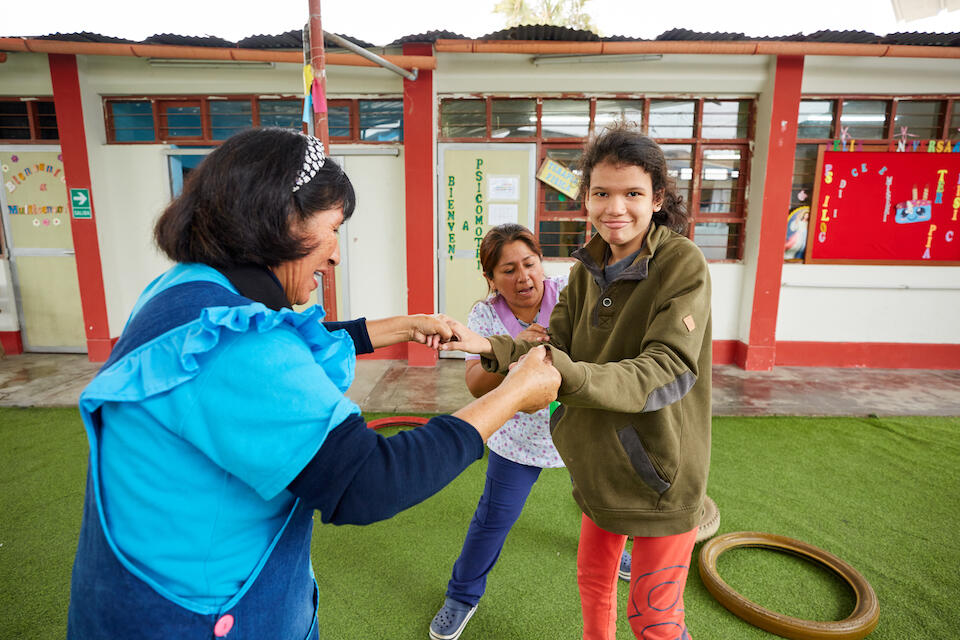
Anaís's family left Venezuela hoping she would be able to attend school for the first time in Peru
There are over 1.5 million Venezuelan refugees and migrants in Peru. The influx of newcomers has strained the education system across the country. Classes are overcrowded, resources are thin and teachers are overstretched. Both the national education system and private schools have struggled to ensure both host community and refugee children can exercise their human right to 12 years of quality education.
The family had nearly given up on finding a school for Anaís. Luckily, UNICEF, with the support of HIAS, an implementing partner, was able to find a placement for Anaís at the CEBE Divina Misericordia School. Anaís was finally able to go to school.
With support from Education Cannot Wait and UNICEF, the school is playing a vital role in Anaís’s physical, mental and emotional development. At her school, she receives regular physical therapy, attends enrichment classes and is making new friends. In addition to these holistic education supports, HIAS was able to secure a wheelchair for Anaís. With her new wheels, the bright-eyed girl has a new lease on life.
While Anaís can still hear perfectly well, her disability has limited her speech. “She struggles with sentence construction and conjugation, but we are still able to communicate with her and understand her,” says her father proudly. “We are grateful for how well the school has welcomed her, and we know she is very happy there.”
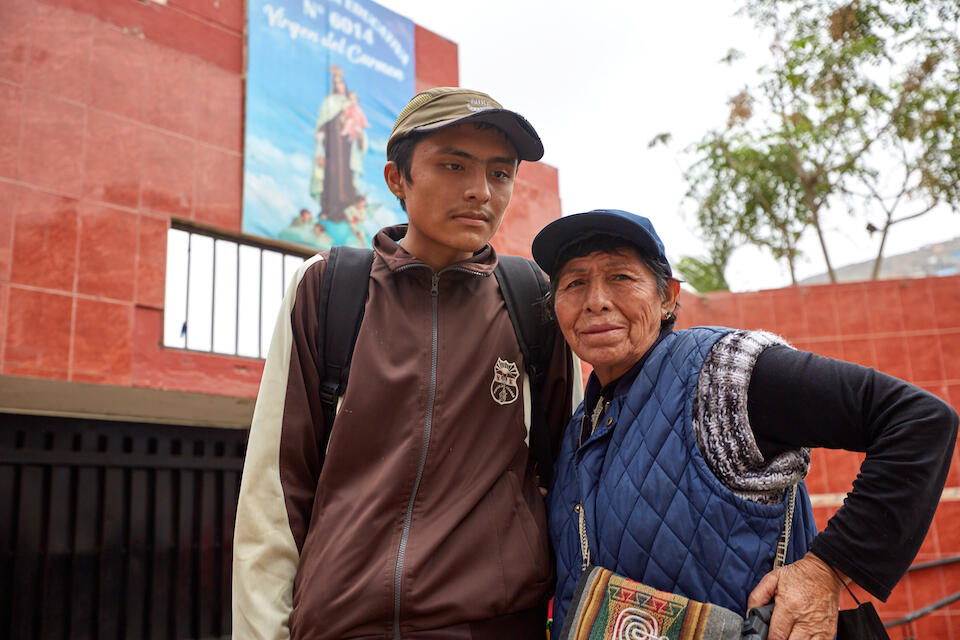
14-year-old Joel is connecting with classmates and working on his autobiography
A native of Peru, Joel, 14, has autism and struggles both in the classroom and within his community as a result of his disability.
With the firm and steadfast support of his grandma — and a learning recovery program at the Virgen del Carmen School —Joel is learning to read and write. The program is delivered through the ECW investment by UNICEF with the support of RET, an implementing partner.
More importantly, he is connecting with his classmates and working hard to achieve his goal of completing an autobiographical book.
I have seen him change for the better at home; he opens up and talks about everything that happens at school. — Joel's Grandma Celestina
“I have seen him change for the better at home; he opens up and talks about everything that happens at school. He did not do that before,” says his Grandma Celestina.
Behind most every great man is an even greater grandma. Celestina has been Joel’s sole guardian since childhood, and she takes her job as a tutor, mentor and grandmother seriously.
“The program taught Joel a lot about math and communication. He now talks more,” she says. “My grandson is happy, very happy with everything he has learned.”
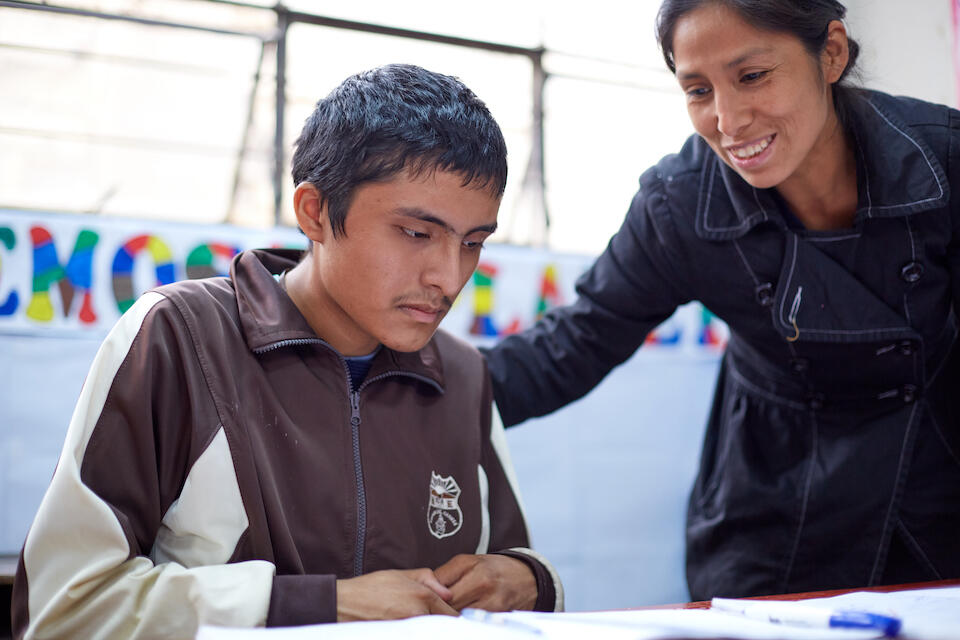
Children with disabilities face persistent barriers to education — more help is needed
ECW has invested a total of $9.3 million to date in Peru. The programs delivered by UNICEF, UNESCO, RET, World Vision, Save the Children, Alternativa, HIAS and other strategic partners in coordination with the Government of Peru have already reached 19,000 children, trained 600 teachers and built 32 classrooms.
Across the globe, ECW and its strategic partners including UNICEF are making substantial investments to ensure no child is left behind — especially children with disabilities.
The needs are immense. Globally, there are 240 million children with disabilities facing “persistent barriers to education stemming from discrimination, stigma and the routine failure of decision makers to incorporate disability in school services,” according to UNICEF.
Join UNICEF, Education Cannot Wait and grandmas everywhere in helping children with disabilities like Joel and Anaís to realize their full potential by calling on world leaders to fund ECW’s four-year strategic plan – or by making your individual donation today. With $1.5 billion in funding, ECW and strategic partners like UNICEF will reach 20 million children — 10 percent of whom are children with disabilities — with the safety, power and opportunity that come with a quality, inclusive education.

